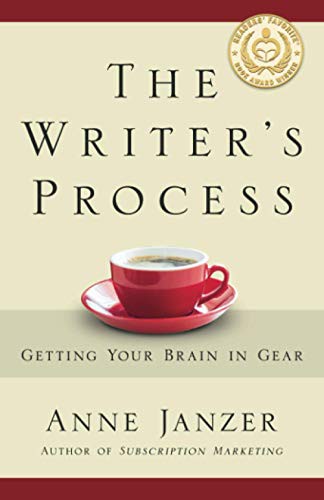Nibsy finished reading The Writer's Process by Anne Janzer
Writing a book takes an enormous amount time time, energy, emotional involvement, and dedication, which is why so many aspiring authors fail. The Writer's Process is an attempt by Anne Janzer, an award-winning nonfiction author, to equip aspiring writers with a basic neurological understanding of how the brain works in the creative process, so we can defend against our own self-sabotage and harness our own brain power power to become successful published authors.
The book is divided into three parts. The first part focuses on the cognitive processes that affect writing. This is not a neuroscience textbook. It's a topical overview of the neurological processes that contribute to creativity and those that can lead to failure. Janzer breaks down these complex processes to the activities of the Scribe and the Muse. The Scribe is all business. It sets deadlines, does the hard work of writing, and attends to the technical side of the craft. It must be called to action intentionally and requires the author to enter a mindset of focused attention. The Muse, on the other hand, represents creativity. The Muse works best when the author adopts a mindset of open attention, like daydreaming and being receptive to random thoughts as they come and making novel connections that lead to ideas. Writing effectively comes from getting the Muse and the Scribe to collaborate with one another.
The second part of the book defines a seven-step writing process, from the initial research stage to the final published piece. Of course, this seven-step process is not written in stone. It's offered simply as a guide, because every writer has to find their own process. To drive this point home, Janzer adopts a bread-making metaphor to represent the writing process. If you have a tried-and-true method, you will make bread (write). The third part of the book addresses common challenges that every writer faces, like writer's block, procrastination, and sticking to the long-term commitment to write a book.
This was my second time through this book, and the second time I took away valuable information I didn't know before. Janzer writes from a position of experience and her insights here are valuable--particularly for non-fiction writers, even though the advice she doles out is applicable to writers of all kinds. If you're finding it difficult to develop a consistent writing practice, for any reason, I recommend giving this book a read.

